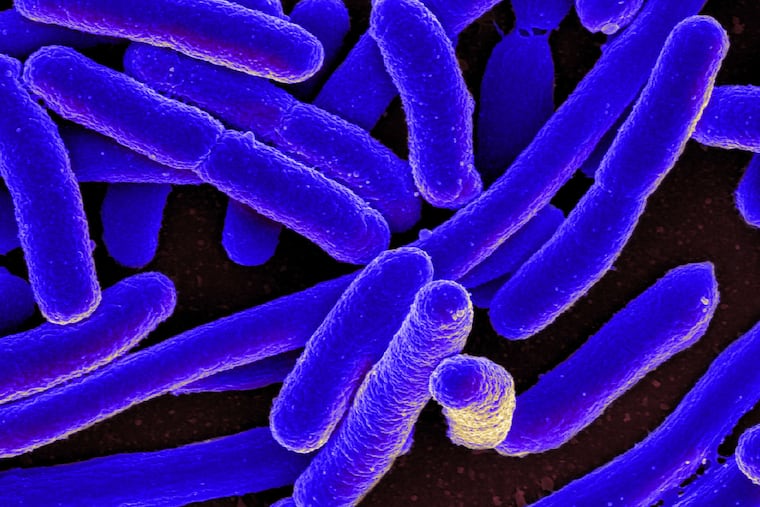Drug-resistant bacteria identified in 15 animal patients at Penn Vet Hospital
The veterinary hospital is working with the Philadelphia Department of Health and the Centers for Disease Control and Prevention.

Fifteen cases of a rare antibiotic-resistant bacteria have been identified in animal patients at the University of Pennsylvania Matthew J. Ryan Veterinary Hospital over the last year, the facility announced Tuesday.
Fourteen companion dogs and one cat that had been infected with carbapenem-resistant E. coli (CRE) were treated at the teaching hospital. CRE is a family of bacteria that can cause difficult-to-treat infections.
The hospital, which became aware of the infection in May, is working with the Philadelphia Department of Public Health and the U.S. Centers for Disease Control and Prevention to determine the source of the infection, according to the university.
The U.S. Food and Drug Administration Veterinary Laboratory Information and Response Network identified a New Delhi metallo-beta-lactamase gene, NDM-5, in its testing. This was the first report of that particular gene in E. coli from pets in Philadelphia and in the United States. The infection has previously been identified in animals from Europe and China.
“All hospitals, both human and veterinary, periodically manage the presence of drug-resistant bacteria,” Michael Mison, Penn Vet’s chief medical officer, said in a news release. “Since it is not possible to completely eliminate the risk, we continually monitor our infection control procedures and isolation protocols."
Thirteen of the 15 infected animals have been discharged from the hospital. The owners of the animals were informed of the infection. The two other animals, which had post-surgical complications unrelated to the infection, were euthanized, according to the university.